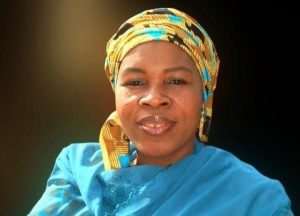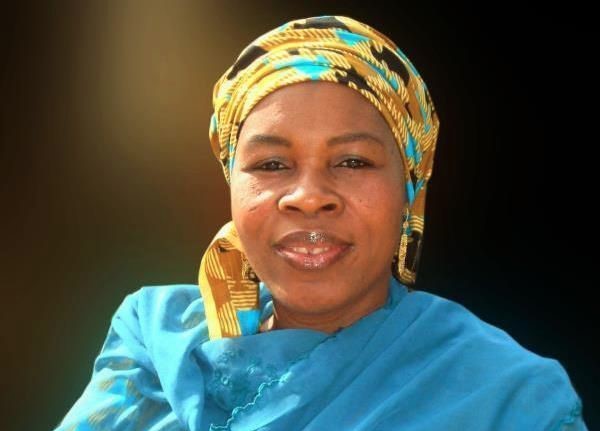By Zainab Suleiman Okino
A leader may not have all the answers, but their thoughtful approach and composed response to criticisms, cries of marginalisation and demands from various quarters can help diffuse tension and foster more constructive dialogue. Whether we call it politics, diplomacy, or clever manoeuvrings, if it calms frayed nerves, it achieves vital, albeit symbolic and intangible goals: rebuilding trust, soothing emotions, and creating space for constructive engagement.
President Bola Tinubu appears to be that kind of leader, adept at displaying political symbolism. The January visit of Ogoni leaders to the president left an indelible mark because of his profound message that struck at the heart of our nation’s struggle with historical grievances. The president emphasised reconciliation and followed up with tangible actions such as the establishment of Ogoni University. It remains unclear whether this was part of the Ogoni leaders’ demands that the president acquiesced to, but the optics are positive, and there has been no discernible dissenting voice against the president’s offer.
His appeal for unity, reconciliation, and healing of social and historical wounds resonated well with those who have worked tirelessly to unify the country. “We cannot in any way rewrite history, but we can correct some anomalies of the past going forward. We cannot heal the wounds if we continue to be angry,” he stated, while calling on Ogoni leaders to “Go back home, do more consultations, and embrace others.” This reflects a mature understanding that lasting peace requires inclusive dialogue and community-wide participation. The subtle reference to honouring the memory of those lost in the struggle indicates sensitivity to sacrifices made while pointing toward a future where such sacrifices need not be repeated.
Tinubu’s pacifist approach extended to Southern Kaduna almost immediately after the Ogoni “deal.” Prior to this, Vice President Kashim Shettima had announced the establishment of a federal university in Southern Kaduna during a condolence visit to Bishop Mathew Kukah’s family following the death of His Highness, Yohanna Sidi Kukah, the Agwom Akulu of Ikulu Chiefdom. Shettima also cited the appointment of Chief of Defence Staff, General Christopher Musa, as evidence of the president’s attention to the region’s security needs and as a form of compensation.
This announcement was soon followed by the conversion of Nok University to the Federal University of Applied Sciences, Kachia in Southern Kaduna. Beyond addressing the concerns about the Muslim-Muslim ticket that characterised the Tinubu campaign—which had stoked divisions leading to conflicts among the Muslim/Christian community, especially in the North—General Musa’s appointment, the university, and proposed medical centre will bring development to the area. These initiatives may also reduce the mutual suspicion, tension, and incessant communal crises that have plagued northern states with large Christian populations, regardless of how tokenistic or insignificant some may consider these gestures.
It is in recognition of this leadership style of appeasement—if one wishes to call it that—that the president has earned support from the Christian Association of Nigeria (CAN) and Northern Christian groups. This stands in contrast to the previous government that justified appointments and development projects based on voting patterns, as acknowledged by former President Muhammadu Buhari.
On two recent occasions, former Speaker Yakubu Dogara defended Tinubu while chastising the North. When supporting Tinubu’s tax reform bill, which was vehemently opposed by northern governors, and at a town hall meeting for Christian leaders in the North, Dogara stated: “It should be made clear that President Tinubu or the South is not our problem. They have not come to cheat the North… Some are claiming that Yoruba people are getting appointments, but let’s reflect. We (North) ruled this country for over 40 years when northerners were in power. What did we achieve? The North remains the same, impoverished by our own leaders.” His statement symbolises Northern Christians’ softening stance on their 2023 rift with Tinubu over the latter’s Muslim-Muslim ticket.
One might argue that expanding and better equipping existing universities should take priority over establishing new ones. However, for communities surrounding these new institutions, the joy is immeasurable as they witness a flurry of activities, massive construction projects, and employment opportunities. This is not to mention the psychological satisfaction derived from knowing that someone in Abuja cares about their needs.
The timely and mature handling of the University of Abuja (now Yakubu Gowon University) crisis and similar cases deserve mention. Over 40 professors at the university opposed the governing council over the appointment of Aisha Maikudi as Vice Chancellor. Their objection stemmed from Maikudi having been a professor for only two years, contrary to the requirement of six years’ professorial experience before appointment as VC. The president intervened, and peace now prevails within the university community.
Under this government, the voices of marginalised and minority groups are being heard, though more inclusive measures are needed. This proactive approach should be deepened. The tax reform and local government autonomy initiatives initially put governors on a collision course with President Tinubu. However, through dialogue and compromise, a collective resolution was found, with the president openly stating that he would not fight governors over control of local government funds.
The situation in the eastern region has been relatively quiet lately. Recall how recalcitrant the Southeast was regarding the Tinubu presidency, with massive votes cast for LP’s Peter Obi instead. Perhaps developments are occurring behind the scenes that ordinary citizens are not privy to. Once the Nnamdi Kanu issue is resolved, we can hope for peace in the Southeast. Evidently, President Tinubu has adopted a leadership style that favours appeasement over confrontation, even as he remains steadfast with economic policies that many argue have impoverished citizens.
Tinubu’s approach demonstrates that sometimes, symbolic gestures and intangible actions can have substantial impact in a diverse nation like Nigeria. While economic policies require careful reconsideration to alleviate hardship, his conciliatory approach to handling regional tensions and ethnic grievances offers a template for building national cohesion. The president’s willingness to engage with various groups, regardless of their political alignment during elections, represents a departure from previous administrations’ approaches and could potentially foster greater unity if sustained and expanded beyond tokenism.
As Nigeria faces multifaceted challenges, the balance between symbolic gestures and substantive policies will determine the lasting legacy of the Tinubu administration. If symbolic reconciliation can translate into structural changes that address fundamental inequities, then perhaps the intangible things that matter today will manifest as tangible progress tomorrow.
Zainab Suleiman Okino is chairman, Blueprint Editorial Board. She is also a syndicated columnist and can be reached via zainabokino@gmail.com


